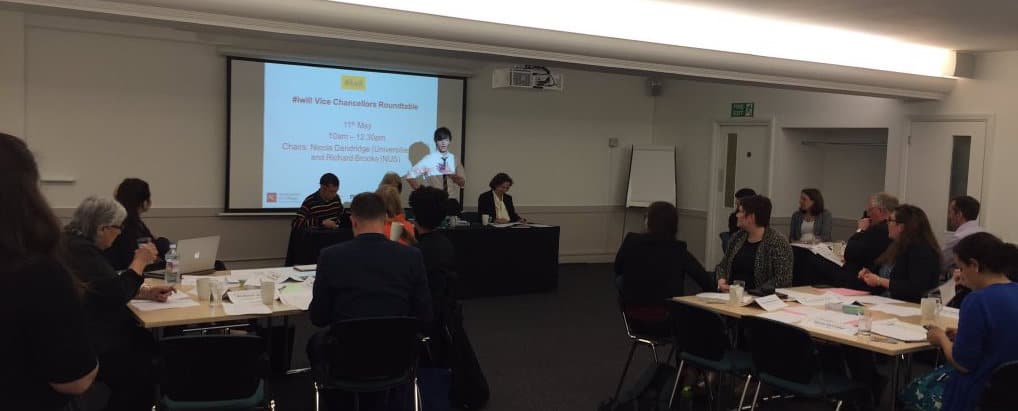As part of Step up to Serve’s #iwill campaign, we’ve been working with partners at the National Union of Students (NUS), Universities UK, the Charities Aid Foundation and the Association of Colleges to bring together a roundtable of Vice Chancellors, university and Higher Education leaders, and social action providers to discuss youth social action in universities.
We know that there are some outstanding examples of student social action in universities across the country. However, the quality and diversity of opportunities, and the level of support provided by institutions, varies widely. We wanted to learn how we can collectively better embed youth social action in universities and scale these great examples across the sector. Yesterday’s roundtable event provided an excellent opportunity for these cross sector discussions to take place.
It is clear from our discussions that there is great potential to rapidly scale student social action in the UK. For this to happen, universities need to prioritise providing quality social action opportunities to their students. Here are some key considerations for decision-makers:
1. Taking part in social action can have a transformative impact on students’ experience of university, enabling them to have a positive impact in their local community whilst developing key employability skills. Liam Rodgers (Student Volunteer of the Year 2016) gave a brilliant speech about his experience of social action and how it had made him an ‘ambassador’ for Sheffield Hallam University. Stephen Isherwood (Chief Executive, AGR) talked about the importance of social action in developing skills employers are looking for, and Sir Anthony Seldon (Vice Chancellor, University of Buckingham) spoke of the importance of service to others in improving our own well being.
2. There is a large gulf in quality between social action opportunities available to students. For students to develop employability skills and civic awareness, student leadership needs to be at the heart of all social action opportunities. It is also crucial that all social action has a double benefit – on students and the community.
3. Universities should put social action at the heart of the student experience, and integrate it into their strategy. Professor Joy Carter (Vice Chancellor, University of Winchester), told us of the importance of Vice Chancellors leading by example and ensuring social action is integrated into strategic plans.
4. Universities should look at what other institutions are doing and adopt similar approaches. Rather than spending time and resources starting from scratch, Vice Chancellors should look to the Universities of Manchester, Winchester, Nottingham Trent and other leaders in this field and adapt their approaches to their own institutions.
At Student Hubs, we provide students with the opportunities and support they need to take part in and lead high quality social action at university. We have experience of working with a broad range of different students and we’ve proven that our model can achieve impact in a variety of different universities.
If you are interested in finding out more, view our university partnership page or email me.
Look out for a more comprehensive piece on the roundtable event next week.

